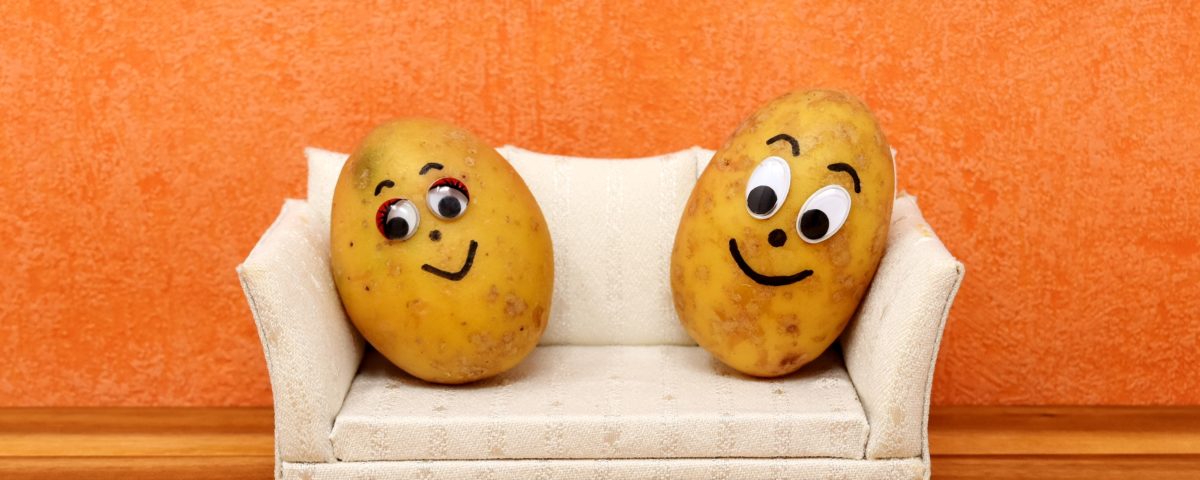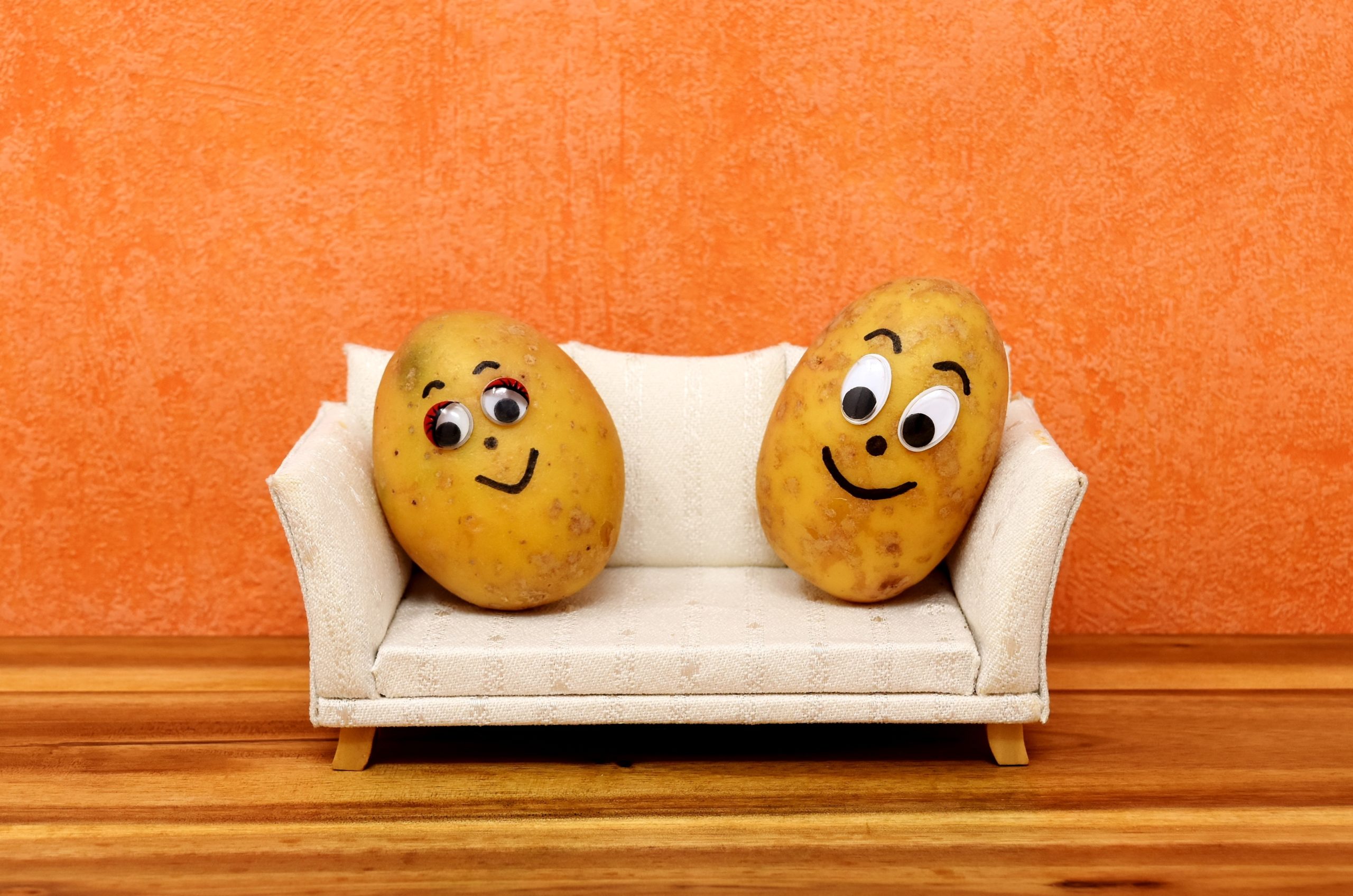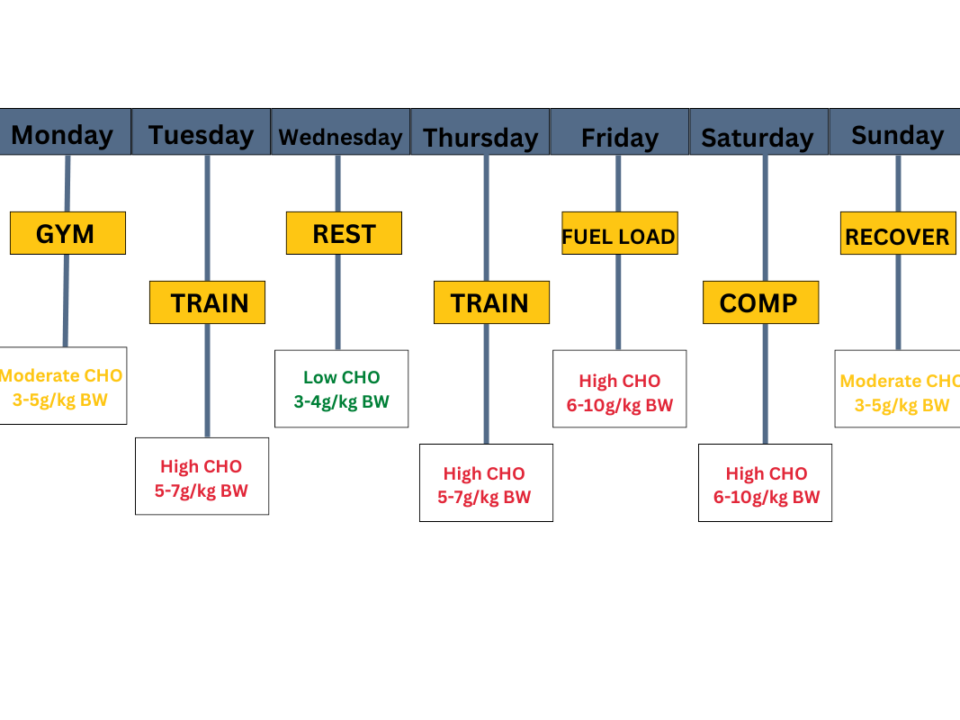Summary
- Potatoes are a nutritious high energy food
- Multiple factors influence the rate at which a potato is digested
- Potatoes are an excellent food for athletes preparing or recovering from exercise
- Potatoes are a hugely flexible food that can be prepared in many ways
Introduction
To say that the potato has been an important food in Irish culture would, of course, be a huge understatement. The potato is the food that has the greatest cultural and historical significance for our small island. As we were all taught in school, the potato blight of the 19th century resulted in the Great Famine, leading to a million deaths and another million people emigrating. Today, potatoes are still one of the most essential food crops grown in Ireland and remain a cherished staple in the diet of many Irish families. Because of recent trends in diet practices moving towards low glycaemic index (GI) for health and/or low carbohydrate diets for fat loss, the value of potatoes (a high GI, high carbohydrate food) in the diet has been subject to intense debate between health professionals and policy makers. So, nutritionally, what value should we attach to the humble spud? You might be surprised to learn that there are around 100 varieties of potato including sweet potatoes, purple potatoes, blue potatoes and white potatoes. For the sake of simplicity, I am going to discuss the most common and well-known garden variety white potato.
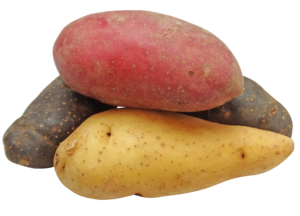
What’s in a potato?
The potato family is part of a class of flowering plants known as nightshades, but we don’t cultivate them for their flowers, that’s for sure! The edible part of the plant that we call the potato is what is known as a tuber – the portion of a variety of plants that becomes enlarged and stores nutrients that support the growth of the plant itself. Unsurprisingly then, potatoes are rich in a variety of micronutrients and minerals such as vitamins C and B6, magnesium and potassium, and are a good source of fibre (5 g per potato if you eat your skins…). Additionally, one medium-sized white potato contains approximately 147 calories, 36 g of carbohydrate, 4 g of protein, and no fat.
Carbs content of the potato and rate of digestion
This high carbohydrate content is by virtue of potatoes being a starchy root vegetable. The crux of the “health” debate around potatoes is that, despite this carbohydrate being in the form of starch rather than sugar, most white potato varieties have a high GI value meaning that potatoes are often rapidly digested and markedly increase blood sugar levels. This response to a meal is generally considered a bad thing. However, there are some other factors that impact the GI value. If eating with other foods (protein, fats, fibre all impact rate of digestion) the variety of potato, cooking method, whether eating hot or cold, and inclusion of the skin can all impact the rate of digestion and therefore how quickly blood sugar levels change. For example, a potato that is peeled, boiled, mashed and eaten alone will be digested quickly and result in a fairly rapid increase in blood sugar. This is not what you want from a meal as it will lead to fluctuations in energy levels and potentially poor appetite control in the following hours. However most meals will include other foods such as meat and vegetables which will impact the rate at which the carbohydrate in potato is digested.
Another important point to consider is your total daily individual need for carbohydrate, the amount of carbohydrate eaten in any one meal should be in the context of your total need for energy and carbohydrate. In simple terms if you haven’t eaten much carbohydrate for breakfast or lunch then you can eat more carbs at dinner time. Also, a reminder that people who exercise regularly have a higher need for carbohydrate compared to those who don’t, and in this case means they can enjoy a bigger portion of potato.
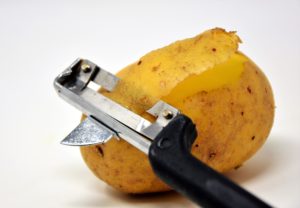
Potatoes and athlete performance
There is no doubt that potatoes can certainly contribute valuably in the diet, but there some considerations based on individual nutrition goals. For example if you are aiming to reduce the total amount of carbohydrate in your diet then reducing the portion of potatoes is an option. Certainly if you are an athlete, someone who regularly exercises to a high intensity or are currently happy with your body composition, potatoes can be an excellent food choice, particularly when combined with a high fibre or high protein food. They are nutritious, light, tasty, easy to flavour, compliment lots of other foods, and in actual fact, due to their fast digestion rate they can aid the rapid refueling of depleted energy stores after an intense workout. So potatoes are best eaten on days when you are exercising (which should be most days!), preferably directly afterwards and in combination with some quality protein and fibrous vegetables.

Can you help me, spud?
Potatoes are a natural, whole food, and so choosing the right one is reasonably straightforward and down to personal preference. This may seem obvious but despite being “potatoes” in the strictest sense, chips, French fries, spicy wedges and crisps are not healthy foods and should be avoided. In fact, the powdered potato products available these days that purport to provide you with mashed potatoes in a box are one of the great abominations of modern food processing. Rather than removing whole natural foods from your diet like potatoes, greater focus should be given to avoiding processed foods with added sugars, sweeteners, preservatives and flavour enhancers.
What’s your spud preference?
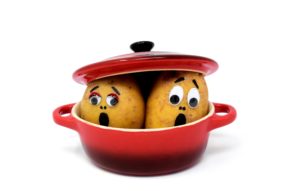
Another question I am often asked is which potato is more preferable: the waxy/soapy potato, or the floury variety. Interestingly, the floury potato, i.e. those that are light and fluffy when cooked, are higher in starch compared to the soapy variety. The high starch content in floury potatoes tends to have a higher GI, and therefore a greater effect on blood sugar levels.
Waxy potatoes, such as new potatoes, are actually categorised as medium GI foods. They are higher in moisture (water) and, although marginally higher in sugar, this is a fraction of a gram, and overall they are lower in starch. Hence, the overall effect is that these potatoes will have less of an effect on blood sugar levels. More importantly, combining a protein or essential fat source like chicken, fish, butter, hummus, or olive oil with your potato is an excellent way to slow the digestion of the potato, and therefore the speed at which it is appears in the blood as sugar. This will provide a more sustained supply of energy to the body and keep you fuller for longer.

How do you like your potato?
Personally my favourite way to prepare potatoes is fairly simple: bake them with skins on, and eat with some 100% real butter, a quality protein source and lots of different vegetables. I got myself in hot water a few years ago when i brought attention to one particular athletes love for potatoes, he doesnt mind what form they come in as long as they are cooked! Joking aside potatoes are undoubtedly a wholesome, balanced and nutritious food to add to any meal and in particular are ideal after an intense training session or workout. That’s not to say that other preparation methods can’t be equally healthy and nutritious. Should you eat potatoes morning, noon and night? Like most energy rich foods, probably not, but the good name of the humble spud should remain intact as part of a balanced diet.





